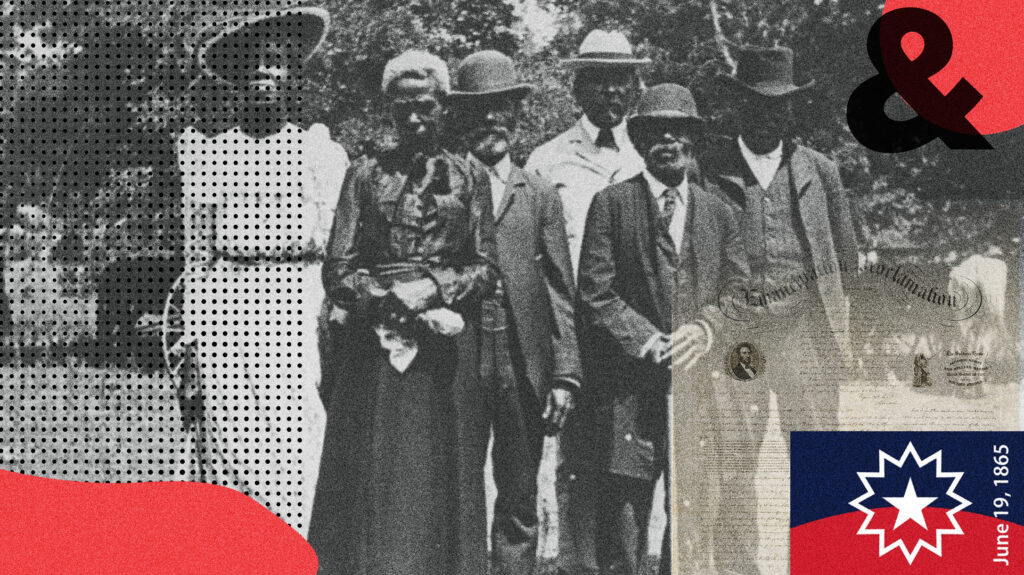Last year, when President Joe Biden signed the bill into law making Juneteenth a federal holiday, it was considered a huge victory in recognizing and celebrating the freedom from slavery for Black Americans.
The U.S. government and at least 24 states have recognized Juneteenth, which falls on June 19. Nevertheless, not all states and cities have been quick to jump on board to making it official.
It was only this past May that Alaska passed legislation to make Juneteenth a state holiday, however final approval is still pending. Alaska lawmakers who oppose a Juneteenth holiday say that the $1.3 million price tag to cover the cost of government workers could be better spent on essential services like health care, and that such a holiday would only offer an excuse for businesses to commercialize Juneteenth.
Others late to the party include the city of San Diego, the state of Michigan, Rapid City South Dakota, and West Virginia, all of whom only just approved Juneteenth as an official paid holiday.
Even so, it’s clear that simply recognizing Juneteenth as a holiday does not change the way we talk about Black history and slavery in the classroom.
Last year, when the House and Senate resolved to address the bill that made Juneteenth a national holiday, activists sounded the alarm over the way some states are banning what’s now called “critical race theory” from school curriculums.
Increasingly, Republican politicians are attempting to legislate the ban on discussion of race in classrooms across the country, saying that such teachings are not only incendiary but inaccurate, making some students feel “uncomfortable”, especially when conversations include “white privilege” and the historical denial of equal rights.
More than ninety organizations including the American Association of University Professors, the American Historical Association, the Association of American Colleges & Universities, and PEN America say they are concerned about the increasing pressure to ban discussions of race and that these lawmakers “suppress the teaching and learning about the role of racism in the history of the United States.”
Joining the list of states that are increasingly finding ways to discriminate and legalize racism is Florida, where state governor Ron DeSantis has blocked discussion of LGBTQ topics in schools, forced the removal of books with gay characters from libraries, and banned gender-affirming care for minors.
This after the DeSantis’ administration and his Republican supporters rejected the College Board’s Advanced Placement African American Studies course and banned state colleges from having virtually any DEI programs, thanks to the passage of the Stop WOKE Act.
The NAACP and its Latino counterpart LULAC, issued a travel advisory for the recent Memorial Day holiday period stating that the State is, “openly hostile toward African Americans, people of color and LGBTQ+ individuals.”
Certainly, what’s happening in Florida can be seen as a bellwether of what’s to come as we head into another presidential election, and it’s why some are demanding more than just a Juneteenth holiday. The call for slavery reparations has reached the steps of the White House, where President Biden has refused to reveal whether he is committed to legislation, saying the decision is for congress. San Francisco has proposed a grant of up to $5million to each resident using taxpayer dollars.
Will other cities get on board? That’s what democratic representative Sheila Wilson from Texas proposed in a bill that would legislate the “lingering negative effects of the institution of slavery” using historical evidence from 1619 to 1865 in order to hand out reparation payments to eligible Black Americans. The act would authorize an appropriation of $20 million.
It’s a conversation that needs to happen, but, as with reparations to Native Americans, it won’t happen without dissent.
So, while Juneteenth is a celebration of Black history and a remembrance of one of the most horrific periods in the annals of the United States, we must remember that, like other holidays meant to bring respect and awareness of ethnic identity, the struggle continues, just as it did when there was no federal mandate for a holiday. We must continue to face the challenges for dignity in a country whose history is indelibly polluted with inequality.
